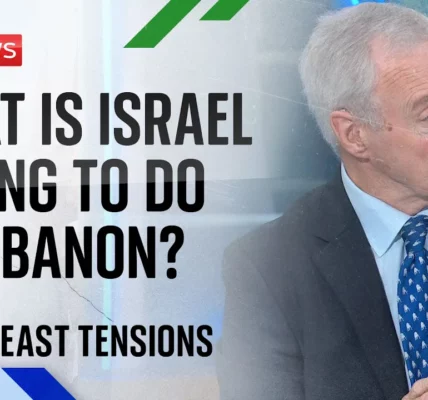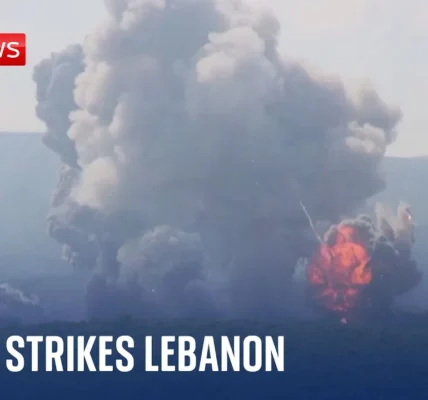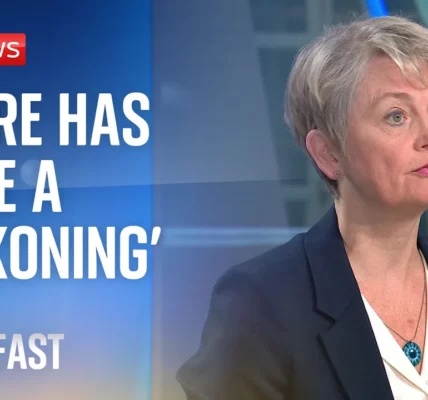Seismic Shifts in the Middle East: The Death of Hassan Nasrallah

This article delves into the significant geopolitical ramifications following the confirmed death of Hassan Nasrallah, the leader of Hezbollah, and how this event may alter the balance of power in the Middle East. With the backdrop of regional tensions, we explore the implications for Iran, Israel, and Lebanon, alongside domestic political reactions within the UK.
Introduction
The recent death of Hassan Nasrallah, the long-standing leader of Hezbollah, has triggered a wave of reactions across the globe, particularly within the Middle East. This event marks a pivotal moment not only for Lebanon but also for the broader geopolitical landscape, including Iran and Israel. As Hezbollah’s influence has been tightly interwoven with Iranian interests, the implications of Nasrallah’s death extend far beyond the immediate military ramifications.
The Context of Nasrallah’s Death
Hassan Nasrallah’s leadership spanned over three decades, during which he became a symbol of resistance against Israeli aggression in Lebanon. His role in the 2006 conflict with Israel solidified his status as a formidable figure in the region.
Military Operations and Tensions
The Israeli airstrikes that led to Nasrallah’s death were described as a significant escalation in ongoing military operations. These operations are aimed at dismantling Hezbollah’s operational capabilities, which have long posed a threat to Israel’s security.
Humanitarian Impact
The fallout from these military actions has been devastating. Reports indicate that over a million people in Lebanon have been internally displaced, and thousands are feared dead or injured as a result of the ongoing conflict.
- Significant civilian casualties reported.
- Over 50,000 individuals expected to flee Lebanon.
- Emergency shelters struggling to accommodate displaced families.
Regional Reactions and Implications
The response from Iran has been swift, with the Supreme Leader vowing vengeance against Israel. This suggests that Iran may ramp up its support for Hezbollah or take direct action against Israeli interests in retaliation.
The Role of Iran
As a key ally of Hezbollah, Iran’s next steps are critical. Analysts suggest that Iran may leverage its regional influence to galvanize support for Hezbollah, potentially leading to an escalation of hostilities.
Israel’s Position
Israeli Prime Minister Benjamin Netanyahu has framed Nasrallah’s death as a historic turning point. However, he acknowledges that the threat from Hezbollah remains significant, indicating that further military actions may be on the horizon.
- Increased military readiness along the Israeli-Lebanon border.
- Potential ground operations against Hezbollah in Southern Lebanon.
- Concerns about the long-term stability of the region following Nasrallah’s death.
Domestic Political Reactions in the UK
The political landscape in the UK has also felt the ripples of these developments. Labor MP Rosie Duffield has resigned from the party, accusing the leadership of hypocrisy regarding the acceptance of gifts while making cuts to vital services.
Impact on Labor Party Dynamics
Duffield’s resignation raises questions about the unity and direction of the Labour Party under Keir Starmer’s leadership. Her scathing remarks highlight growing dissent among party members regarding its current policies.
The Broader Political Climate
The implications of international events on domestic politics are profound. As the public grapples with issues of governance and representation, the response to crises abroad may influence voter sentiments back home.
Conclusion
The death of Hassan Nasrallah represents a significant turning point in Middle Eastern geopolitics, with potential ramifications that could alter the region’s balance of power. The humanitarian crisis unfolding in Lebanon, coupled with escalating tensions between Israel and Iran, paints a worrying picture for the future. As political dynamics shift both regionally and domestically, it is essential to remain engaged and informed about the ongoing developments. Stay tuned for further updates and analysis on this critical issue.
Call to Action: For more insights on global conflicts and their implications, explore our related articles on Middle Eastern politics, humanitarian crises, and political analysis.
“`




